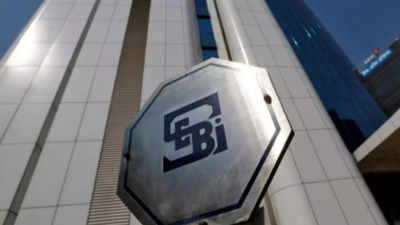Stock market crash: Where are BSE Sensex & Nifty50 headed and should investors be worried?

[ad_1]

Stock market crash today: BSE Sensex and Nifty50, plunged in trade on Thursday, mirroring global cues on the back of increased Middle East tensions and rising crude prices. BSE Sensex closed the day, down 2.10% at 82,497.10, and Nifty50 closed the day at 25,250.10, down 2.12%.
The bloodbath on Dalal Street left equity investors poorer by Rs 9.78 lakh crore. The market capitalization of companies listed on the Bombay Stock Exchange (BSE) plummeted by Rs 9,78,778.57 crore, bringing the total value down to Rs 4,65,07,685.08 crore ($ 5.54 trillion) in just one trading session.In the last few days, BSE Sensex has corrected around 4% from the near 86,000 high it hit last week.
The risk of a broader regional conflict has increased following Iran’s missile strike on Israel. While Iran insisted it has “no interest in a broader war” after the attacks, Israel has vowed to strike back.
Evercore ISI, an investment banking advisory firm, noted in a client note that “Iran’s decision to respond to devastating attacks from Israel against its proxy Hezbollah, including a new ground offensive, with a ballistic missile strike against Israel, raises the risk of a wider regional conflict that could draw in the US and disrupt oil markets. However, according to an ET report, market analysts suggest that the potential downsides in stock markets could be contained.
Stock market outlook: Where are Sensex & Nifty headed?
According to Sandeep Raina, Executive Vice President-Research, Nuvama Professional, the market correction is temporary in nature. “The changes in derivative regulations and the expiry scheduled for today has led to the corrections in the market,” Raina told TOI. “However, this is a temporary reaction and we don’t expect any major corrections. The markets should stabilize and return to normal levels in the coming days,” he said.
Escalating tensions in the Middle East have led to a surge in oil prices, with concerns that supplies from major producers could be disrupted. For countries that heavily rely on oil imports, such as India, the increase in crude prices is a significant concern, as it can have a substantial impact on their import bill and overall economy.
Dr V K Vijayakumar, Chief Investment Strategist at Geojit Financial Services, warned, “The situation will change if Israel attacks any oil installations in Iran which will trigger a huge spike in crude. If it happens, it can turn out to be more damaging for oil importers like India. Therefore, investors should watch the emerging situation very closely.”
Narendra Solanki, Head Fundamental Research – Investment Services, Anand Rathi Shares and Stock Brokers predicts heightened volatility in Indian stock markets in the coming weeks.
“The current geopolitical induced risks and ongoing US election cycle may continue to impact global markets including India in the short term. Also, we are entering the results season starting next week and that is also going to add to the moves depending on the quality of results,” Solanki told TOI.
“Hence, I see near term 2-3 weeks of heightened news based volatility in the markets. Investors may book some profits in stocks which have run up way ahead of fundamentals and could look for new ideas and add in a staggered manner,” he said.
Chinese dragon roars: India’s biggest worry
For investors in India, the resurgence of Chinese stocks, which have underperformed in recent years, could be a more significant concern, feel analysts.
The Chinese government recently announced a series of economic stimulus measures, which has led to predictions by analysts that the rebound in Chinese stocks could be sustained. As a result, there is a possibility that some funds may be redirected from India to China, as global investors have been favoring India over China in recent times.
The recent stimulus package introduced by the Chinese government is being hailed as a game-changer for the nation’s economy and stock markets. Victoria Mio, head of Greater China equities and portfolio manager at Janus Henderson, believes that this shift in focus from debt control to growth support could be the key to restoring investor confidence and unlocking value in China’s markets.
“As global investors seek stability amidst uncertainty, the Chinese government’s decisive pivot from debt control to growth support could be the catalyst needed to restore confidence and unlock value in China’s markets.”
The impact of this stimulus package is already being felt in the Chinese stock market, with the SSE Composite index gaining over 15% in the past week, including an impressive 8% rise on Tuesday.
Andrew Holland, CEO of Avendus Capital Public Markets Alternate Strategies, attributes this surge to a combination of short covering and a growing belief in the effectiveness of the government’s policies. He also suggests that some of the capital outflows from India may have been redirected to China to capitalize on the sharp rally.
Looking ahead, Holland believes that global interest rate cuts will benefit all emerging markets. For India specifically, investors will be closely monitoring the upcoming results season to gauge the health of the economy and individual companies.




